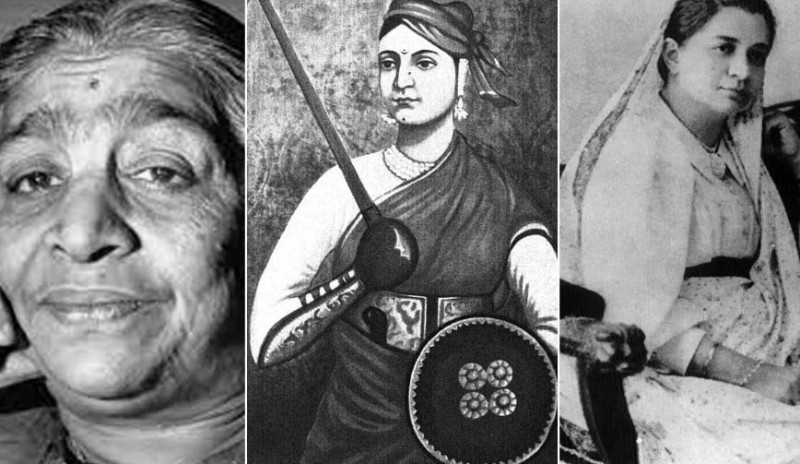
While history often spotlights male leaders in India's struggle for independence, the pivotal role of women cannot be overlooked. Women freedom fighters, from iconic figures like Rani Lakshmibai of Jhansi to eloquent voices like Sarojini Naidu, played an indispensable role in shaping the course of the movement. Their diverse contributions, sacrifices, and unwavering resolve to break the chains of British rule have left an indelible mark on the narrative of Indian nationalism.
The Valiant Queens and Warriors: Rani Lakshmibai and Others:
Rani Lakshmibai of Jhansi stands as a symbol of courage and defiance, leading her forces valiantly against British forces during the Indian Rebellion of 1857. Her spirit inspired many women to join the cause, proving that the fire of resistance burned equally in the hearts of both men and women. Other valiant women, like Matangini Hazra and Begum Hazrat Mahal, stood as living testaments to the indomitable spirit of Indian women in the face of adversity.
Sarojini Naidu: The Nightingale of India's Struggle:
Sarojini Naidu, fondly known as the Nightingale of India, added a poetic touch to the fight for freedom with her eloquent speeches and poignant verses. She was an instrumental figure in raising awareness and garnering support for the Indian Nationalist Movement. Naidu's contribution illustrated that the pen and the podium were powerful tools of resistance, transcending gender boundaries.
Kasturba Gandhi: The Beacon of Sacrifice and Determination:
The wife of Mahatma Gandhi, Kasturba Gandhi, emerged as an emblem of sacrifice and determination. Her participation in various acts of protest, including the Salt March, showcased her commitment to the cause of independence. Kasturba's active involvement in civil disobedience movements exemplified the integral role that women played, even in the face of arrests and hardships.
Breaking Societal Norms: Women as Agents of Change:
The women who participated in India's freedom movement defied societal norms and expectations, shattering conventional roles and stepping into the forefront of the struggle. They engaged in protests, organized meetings, and actively participated in boycotts of British goods, demonstrating their resolve to claim their rightful place in shaping the destiny of the nation.
Gender Equality and Empowerment: Building a New India:
The women of India's freedom movement laid the foundation for gender equality and empowerment in post-independence India. Their participation highlighted the importance of women's voices in the decision-making process. The movement paved the way for initiatives that aimed to uplift women and provide them with opportunities for education and participation in the socio-political fabric of the nation.
Conclusion: Honoring the Unsung Heroes
The role of women in India's struggle for independence remains a testament to their strength, resilience, and dedication. Their sacrifices often went unnoticed, but their impact was profound. The valiant queens, the eloquent voices, and the determined activists collectively contributed to the realization of a free India. As we reflect on this history, it is crucial to honor the unsung heroes and acknowledge that the women of India's freedom movement were the silent powerhouses that fueled the nation's journey to liberty.